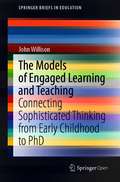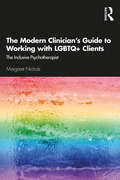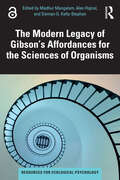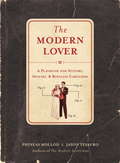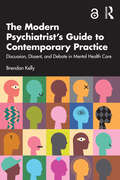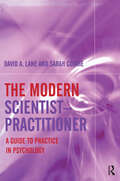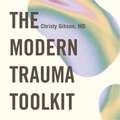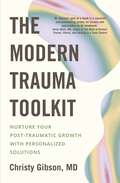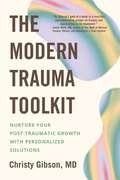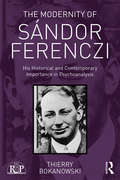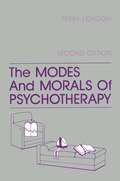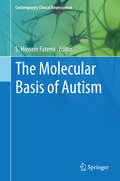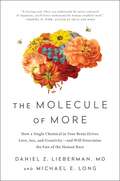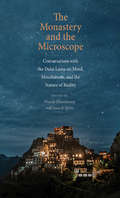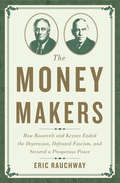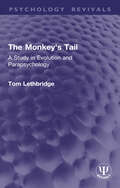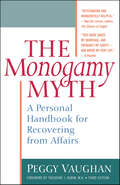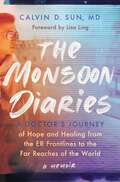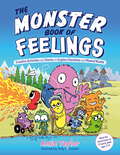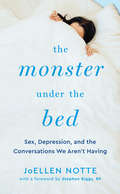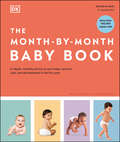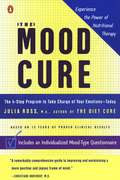- Table View
- List View
The Models of Engaged Learning and Teaching: Connecting Sophisticated Thinking from Early Childhood to PhD (SpringerBriefs in Education)
by John WillisonThis book provides a practical philosophy for promoting students' sophisticated thinking from Early Childhood to PhD in ways that explicitly interconnect across the years of education. It will help teachers, academics and the broader learning and teaching community to understand and implement these connections by introducing a conceptual framework, the Models of Engaged Learning and Teaching (MELT). By covering the nature, philosophy, practice and implications of MELT for teachers and students alike, the book will help teachers to facilitate students’ awareness of, and increasing responsibility for, the thinking demanded by subject and discipline-specific learning as well as interdisciplinary learning, whether face to face, online or in blended modes. The book will also provide educators with ways to effectively engage with complex, and sometimes conflicting, contemporary educational concepts, and with a diverse variety of colleagues involved in the learning and teaching enterprise.The book provides guidance that allows curriculum improvement, teacher action research and larger-scale research to be reported on from a common perspective, bridging the gap between those readers focused on research and those focused on teaching. The book shares valuable insights and ways of addressing the contemporary issue of discipline-based learning versus transdisciplinary learning, reducing the dichotomy and enabling the two approaches to complement each other.This is an Open Access book.
The Modern Clinician's Guide to Working with LGBTQ+ Clients: The Inclusive Psychotherapist
by Margaret NicholsThe Modern Clinician's Guide to Working with LGBTQ+ Clients is a ground-breaking resource for therapists working with LGBTQ+ clients whose identity expressions span all gender-, sex-, and relationship-diverse groups. Combining the author’s extensive clinical experience with contemporary evidence-based research, the chapters of this book explore the origins and development of sexual minority groups, going beyond lesbian women and gay men to include transgender and gender nonbinary people, kink and polyamory, bisexuality and pansexuality, and those who identify as asexual or aromantic. The text also offers in-depth coverage of clinical work with transgender, gender-nonconforming, and nonbinary clients of all ages. With a wealth of therapeutic strategies and case studies, this resource helps professionals respond to this ‘Big Tent’ community in an informed and empathetic way. Spanning sexuality, gender, relationships and age groups, The Modern Clinician's Guide to Working with LGBTQ+ Clients is an invaluable reference for psychotherapists in a broad range of clinical settings.
The Modern History of Art Therapy in the United States
by Maxine Borowsky JungeIn her history of art therapy in the United States Junge (clinical art therapy, Loyola Marymount University, Los Angeles, emerita) explodes across the page with her passionate commitment to the field and the people who developed it, many of them friends of hers. She begins with the naming of the discipline in the 1940s. Each section contains short biographies of and interviews with those who pioneered the field. There are also notations of important social and political events that affected the way in which art therapists worked. The book progresses by decade detailing the successes and setbacks in creating the profession and having it recognized as valid. She concludes by saying that it is satisfying to have achieved so much but that she hopes that art therapy will never become codified and regimented. If other art therapists are at all like Junge there is no danger of that happening. Annotation ©2011 Book News, Inc. , Portland, OR (booknews. com)
The Modern Legacy of Gibson's Affordances for the Sciences of Organisms (Resources for Ecological Psychology Series)
by Madhur Mangalam Alen Hajnal Damian G. Kelty-StephenThis edited collection provides a comprehensive and empirically informed discussion on affordances and their role in studying goal-directed behavior, covering philosophical, experimental psychological, neuroscientific, and applied perspectives. Showcasing the work of expert contributors from different backgrounds, the book inspires new directions for future research in affordances. Chapters address questions relating to the definition and perception of affordances, their advantages over stimuli, the relationship between affordances and behavior, and how systems engage with affordances in different tasks and intentions. This question-based format provides a distinctive perspective that allows for a thorough exploration of the expansive field of affordance research. This book serves as a crucial resource for seasoned scientists, researchers, and undergraduate and graduate students in the fields of ecological psychology, sensation and perception, cognition, and the philosophy of cognitive science, as well as non-academic individuals interested in mind sciences broadly construed. It provides valuable insights and knowledge in these fields, making it an essential reference for those seeking to deepen their understanding in the areas of perception and cognition.
The Modern Legacy of Gibson's Affordances for the Sciences of Organisms (Resources for Ecological Psychology Series)
by Madhur Mangalam Alen Hajnal Damian G. Kelty-StephenThis edited collection provides a comprehensive and empirically informed discussion on affordances and their role in studying goal-directed behavior, covering philosophical, experimental psychological, neuroscientific, and applied perspectives.Showcasing the work of expert contributors from different backgrounds, the book inspires new directions for future research in affordances. Chapters address questions relating to the definition and perception of affordances, their advantages over stimuli, the relationship between affordances and behavior, and how systems engage with affordances in different tasks and intentions. This question-based format provides a distinctive perspective that allows for a thorough exploration of the expansive field of affordance research.This book serves as a crucial resource for seasoned scientists, researchers, and undergraduate and graduate students in the fields of ecological psychology, sensation and perception, cognition, and the philosophy of cognitive science, as well as non-academic individuals interested in mind sciences broadly construed. It provides valuable insights and knowledge in these fields, making it an essential reference for those seeking to deepen their understanding in the areas of perception and cognition.Chapter 5 of this book is freely available as a downloadable Open Access PDF at http://www.taylorfrancis.com under a Creative Commons Attribution-Non Commercial-No Derivatives (CC-BY-NC-ND) 4.0 license
The Modern Lover
by Jason Tesauro Phineas MollodHaving presented the definitive portrait of the enlightened male in THE MODERN GENTLEMAN, Phineas Mollod and Jason Tesauro explore affairs of the heart (and temptations of the loins) in this rollicking sequel. The authors begin by charting the life of the evolved bachelor, offering sage advice on such topics as ÄúOne-Night Stands, Äù ÄúDemystifying the Flogger, Äù and ÄúWebslinging Äù (dating online). Mollod and Tesauro next contemplate the transitional man's path from the ÄúMe Cycle Äù to the ÄúWe Cycle. Äù Whether you are trying to convince close friends of the charms of your new love or testing the long arm of puritanical parents by ÄúLiving in Sin, Äù Mollod and Tesauro have a stiff drink and cool counsel at the ready. And for those modern bachelors who are getting hitched, the authors have copious advice on staging an unorthodox wedding with class, managing the financial merger, stoking the bedroom coals, and embarking on ÄúDaddy Detox. Äù Packed with sharp wit and insightful commentary, THE MODERN LOVER is the definitive guide for guys negotiating the road from bachelor pad to bedroom fads to brand-new dad.This sequel to THE MODERN GENTLEMAN (40,000 copies sold) offers essential advice and instills savoir faire for avowed bachelors (rounding out the sexual resume; test-driving toys and tolerances), serial monogamists (balancing provocative friendships with at-home loyalties; avoiding the dreaded state of ÄúP-Whipped Äù), and husbands-to-be (managing in-laws and outlaws; minding ÄúLights & Darks Äù).Mollod and Tesauro are monthly manners columnists for Men's Health magazine. Authors Mollod and Tesauro have championed manners Äúmakeovers Äù on CNN and The Montel Williams Show.From the Trade Paperback edition.
The Modern Psychiatrist’s Guide to Contemporary Practice: Discussion, Dissent, and Debate in Mental Health Care
by Brendan KellyThe Modern Psychiatrist’s Guide to Contemporary Practice provides an overview of psychiatry, starting with the most fundamental question of all: why does psychiatry exist?Key topics are covered, such as: diagnosing mental illness, controversial treatments, involuntary admission, human rights, suicide, and global inequality. The book incorporates history, medicine, neuroscience, service development, legislation, and service-user movements. It summarises key findings and discussions, provides opinions based on evidence, presents clear conclusions, and describes useful, radical directions for the future of this most contested of medical disciplines. Each chapter includes useful chapter summaries, and case studies are provided throughout.This book is essential for mental health workers and trainees, academics, and those interested in what psychiatry is, why it exists, and its future potential. The Open Access version of this book, available at http://www.taylorfrancis.com, has been made available under a Creative Commons Attribution (CC-BY) 4.0 International license.
The Modern Scientist-Practitioner: A Guide to Practice in Psychology
by Sarah Corrie David A. LaneThe Modern Scientist-Practitioner argues for a radical rethink of how we understand the science-practice relationship and the notion of the scientist-practitioner model. Drawing on the latest innovations and research from the fields of anthropology, industry, philosophy, psychology and science, David Lane and Sarah Corrie present a new vision of the scientist-practitioner model that is dynamic, contextualised and synergistic. Subjects covered include: innovation and improvization: The unacknowledged world of the creative scientist-practitioner. what kind of scientists are we? re-examining the Nature of Scientific knowledge. acquiring the art of reasoning: straddling the worlds of rigour and meaning. arriving at shared psychological narratives: formulation and explanation. the scientist-practitioner in applied psychology settings. learning for tomorrow: professional survival in an uncertain world. This timely and thought-provoking book will appeal to professionals at all stages of their careers, including psychologists of all disciplines, researchers, educators, policy-makers, healthcare professionals and students.
The Modern Trauma Toolkit
by Dr Christy GibsonMental health wisdom and a systems-approach to trauma from a family doctor who works with people suffering from stress and community-based challenges, offering practical advice that can be personalized for listeners to choose the tools they wish to practice.In the midst of collective trauma, it helps us to know how our body is built to respond to stress and what we might do to shift those reflexes. The Modern Trauma Toolkit directly addresses that need. Having studied brain-based and body-based approaches to wellbeing, Dr. Christy Gibson (@tiktoktraumadoc) is adept at sharing what she's learned about stress and coping with others, to embrace our innate power and to catalyze community wisdom. The Modern Trauma Toolkit shares with listeners how challenges can change the body. Written in an accessible and trauma-informed way, Christy goes over new theories in brain biology like the polyvagal theory and epigenetics, and how the brain can be remodeled to achieve post-traumatic growth. Noting the inequitable stressors of modern times and faced by particular communities, she describes how their strengths can be harnessed. Dr. Gibson shares a variety of activities that can be self-taught so you can begin your healing journey.(P) 2023 Jessica Kingsley Publishers
The Modern Trauma Toolkit
by Dr Christy GibsonMental health wisdom and a systems-approach to trauma from a family doctor who works with people suffering from stress and community-based challenges, offering practical advice that can be personalized for readers to choose the tools they wish to practice.In the midst of collective trauma, it helps us to know how our body is built to respond to stress and what we might do to shift those reflexes. The Modern Trauma Toolkit directly addresses that need. Having studied brain-based and body-based approaches to wellbeing, Dr. Christy Gibson (@tiktoktraumadoc) is adept at sharing what she's learned about stress and coping with others, to embrace our innate power and to catalyze community wisdom. The Modern Trauma Toolkit shares with readers how challenges can change the body. Written in an accessible and trauma-informed way, Christy goes over new theories in brain biology like the polyvagal theory and epigenetics, and how the brain can be remodeled to achieve post-traumatic growth. Noting the inequitable stressors of modern times and faced by particular communities, she describes how their strengths can be harnessed. Dr. Gibson shares a variety of activities that can be self-taught so you can begin your healing journey.
The Modern Trauma Toolkit: Nurture Your Post-Traumatic Growth with Personalized Solutions
by Christy GibsonEmbrace your innate power and find growth from trauma with this essential guide filled with groundbreaking solutions and strategies for your healing journey. Amid collective trauma, it helps to know that our bodies are built to respond to stress and what we might do to shift those reflexes. Having studied brain-based and body-based approaches to wellbeing, Dr. Christy Gibson teaches readers how to embrace their innate power and catalyze community wisdom. Drawing on her work with people suffering from stress and societal challenges, Dr. Gibson shares practical and effective mental health advice you can personalize. In clear and accessible language, The Modern Trauma Toolkit describes new theories in brain biology, such as the polyvagal theory and epigenetics, and explains how you can remodel your brain to achieve post-traumatic growth. While noting how particular communities face inequitable stressors, she empowers readers to identify and harness their unique and cultural strengths. Dr. Gibson shares over forty activities that can be self-taught and practiced so you can begin your healing journey today, including: Iffirmations: Reimagine affirmations to plant seeds of possibility The Container: Create your box of shame and leave it behind Havening: Discover the body's three areas that are best suited to self-soothing Solutions Studio: Catalyze change at the systems level using design thinking
The Modernity of Sándor Ferenczi: His historical and contemporary importance in psychoanalysis (Relational Perspectives Book Series)
by Thierry BokanowskiThe Modernity of Sándor Ferenczi provides a concise yet thorough overview of the life and work of Sandor Ferenczi. It seeks to help make his thought and work better known, as a controversial pioneering psychoanalyst whose importance to psychoanalysis has sometimes been wrongfully neglected and relegated to backstage. Including excerpts from his most important papers, this book gives the reader a clear guide to the major tenets of Ferenczi’s work, the psychoanalytic context in which his significant achievements occurred, and the continued importance of his work for contemporary psychoanalytic theory and clinical practice. Thierry Bokanowski examines Ferenczi’s work in three main stages: 1. A first period of contribution to Freud’s work (1908-1914) 2. A second period of the deployment of Ferenczi’s own thought and work (1914-1925) 3. A third period of calling concepts into question and advancing new concepts (1926-1933) Bokanowski offers a detailed analysis of these three periods, illustrating them vividly by analysing Ferenczi’s numerous and very famous articles or books during these periods in a way that allows his very original way of thinking to unfold. He then examines at the theoretical level the heritage of Ferenczi’s hypotheses developed across these three time spans. Covering Ferenczi’s relationship with Freud and with other early psychoanalysts, and his role in formulating well-established concepts such as introjection, countertransference and narcissistic splitting, The Modernity of Sándor Ferenczi provides an essential and accessible read for any student or clinician of psychoanalysis or psychoanalytic psychotherapy seeking to apply Ferenczi’s work in the present and understand the historical development of psychoanalytic ideas.
The Modes And Morals Of Psychotherapy (Clinical and Community Psychology)
by Perry LondonFirst published in 1986. Routledge is an imprint of Taylor & Francis, an informa company.
The Modular Architecture of Grammar
by Jerrold M. SadockModular grammar postulates several autonomous generative systems interacting with one another as opposed to the prevailing theory of transformational grammar where there is a single generative component - the syntax - from which other representations are derived. In this book Jerrold Sadock develops his influential theory of grammar, formalizing several generative modules that independently characterize the levels of syntax, semantics, role structure, morphology and linear order, as well as an interface system that connects them. Multi-modular grammar provides simpler, more intuitive analyses of grammatical phenomena and allows for greater empirical coverage than prevailing styles of grammar. The book illustrates this with a wide-ranging analysis of English grammatical phenomena, including raising, control, passive, inversion, do-support, auxiliary verbs and ellipsis. The modules are simple enough to be cast as phrase structure grammars and are presented in sufficient detail to make descriptions of grammatical phenomena more explicit than the approximate accounts offered in other studies.
The Molecular Basis of Autism
by S. Hossein FatemiThis book is a comprehensive overview of the clinical and scientific aspects of Autism from the leading experts in the field. The clinical section covers everything from epidemiological features to epigenetic regulation to behavioral therapies and much in between. The basic science section presents the latest knowledge on the underlying causes of the disorder including the role of various neurotransmitters, neurexins and neuroligins, reelin, and other proteins. Chapters also explore the cognition and motor control in autism and the connection between oxidative stress and mitochondrial dysfunction and autism. The thorough description of these underlying causes may help researchers and clinicians find more effective treatments and therapies for the 1 in 68 American children who have been diagnosed with Autism.
The Molecule of More: How a Single Chemical in Your Brain Drives Love, Sex, and Creativity--and Will Determine the Fate of the Human Race
by Daniel Z. Lieberman Michael E. LongWhy are we obsessed with the things we want only to be bored when we get them? Why is addiction perfectly logical to an addict? Why does love change so quickly from passion to indifference? Why are some people die-hard liberals and others hardcore conservatives? Why are we always hopeful for solutions even in the darkest times—and so good at figuring them out? The answer is found in a single chemical in your brain: dopamine. Dopamine ensured the survival of early man. Thousands of years later, it is the source of our most basic behaviors and cultural ideas—and progress itself. Dopamine is the chemical of desire that always asks for more—more stuff, more stimulation, and more surprises. In pursuit of these things, it is undeterred by emotion, fear, or morality. Dopamine is the source of our every urge, that little bit of biology that makes an ambitious business professional sacrifice everything in pursuit of success, or that drives a satisfied spouse to risk it all for the thrill of someone new. Simply put, it is why we seek and succeed; it is why we discover and prosper. Yet, at the same time, it's why we gamble and squander. From dopamine's point of view, it's not the having that matters. It's getting something—anything—that's new. From this understanding—the difference between possessing something versus anticipating it—we can understand in a revolutionary new way why we behave as we do in love, business, addiction, politics, religion—and we can even predict those behaviors in ourselves and others. In The Molecule of More: How a Single Chemical in Your Brain Drives Love, Sex, and Creativity—and will Determine the Fate of the Human Race, George Washington University professor and psychiatrist Daniel Z. Lieberman, MD, and Georgetown University lecturer Michael E. Long present a potentially life-changing proposal: Much of human life has an unconsidered component that explains an array of behaviors previously thought to be unrelated, including why winners cheat, why geniuses often suffer with mental illness, why nearly all diets fail, and why the brains of liberals and conservatives really are different.
The Monastery and the Microscope: Conversations with the Dalai Lama on Mind, Mindfulness, and the Nature of Reality
by Wendy Hasenkamp Janna R. WhiteAn illuminating record of dialogues between the Dalai Lama and some of today’s most prominent scientists, philosophers, and contemplatives In 2013, during a historic six-day meeting at a Tibetan monastery in southern India, the Dalai Lama gathered with leading scientists, philosophers, and monks for in-depth discussions on the nature of reality, consciousness, and the human mind. This eye-opening book presents a record of those spirited and wide-ranging dialogues, featuring contributions from prominent scholars like Richard Davidson, Matthieu Ricard, Tania Singer, and Arthur Zajonc as they address such questions as: Does nature have a nature? Do you need a brain to be conscious? Can we change our minds and brains through meditation? Throughout, the contributors explore the exciting and sometimes surprising commonalities between Western scientific and Tibetan Buddhist methods of perceiving, investigating, and knowing. Part history, part state-of-the-field, part inspiration for the future, this book rigorously and accessibly explores what these two investigative traditions can teach each other, and what that can tell us about ourselves and the world.
The Money Makers: How Roosevelt and Keynes Ended the Depression, Defeated Fascism, and Secured a Prosperous Peace
by Eric RauchwayShortly after assuming office in early 1933, Franklin D. Roosevelt made the bold decision to take the United States off the gold standard. This was only the first act in his quest to use monetary policy as a political tool. In The Money Makers, the distinguished historian Eric Rauchway shows how FDR and his brilliant team of advisers--John Maynard Keynes, Harry Dexter White, and Cordell Hull--paved the way for economic recovery. By responding decisively to the Great Depression at home, they warded off indigenous fascist movements and ensured an Allied victory in World War II, laying the foundation for decades of global peace and prosperity.Capturing not only the contentious debates among these headstrong figures but also the spirit of innovation that united them, Rauchway argues that we have forgotten their accomplishments. One result is that our modern preference for monetary stability over economic growth has led to stagnation and rising inequality. By uncovering the origins of midcentury economic success, Rauchway shows how we can recapture prosperity for our own age.
The Monkey's Tail: A Study in Evolution and Parapsychology (Psychology Revivals)
by Tom LethbridgeIn the 1960s T. C. Lethbridge’s challenging, probing studies were well established. First published in 1969, The Monkey's Tail was as remarkable as his previous investigations. Mr Lethbridge – who was trained in Natural Science before he became an archaeologist – had for years been unable to accept Darwin’s theory of Evolution. In this book he examines the theory in the light of his observations and experience. He found it wanting in every particular which he examined.In the first part of the book Mr Lethbridge puts his case against the theory of Evolution, and in the second part he shows that the known facts of Evolution could be equally well explained in another way. He had for many years been working on the ‘fringe’ study of Extra Sensory Perception, and he used that study to present an alternative theory to Darwinism.Mr Lethbridge was well aware that much more evidence was needed before his ideas could either be proved or disproved finally; but they do provide a reasoned explanation based on years of careful study. The theory he put forward was not only more compatible with observed scientific fact at the time, but less at variance with accepted religious beliefs.This book is a re-issue originally published in 1969. The language used is a reflection of its era and no offence is meant by the Publishers to any reader by this re-publication.
The Monogamy Myth: A Personal Handbook for Recovering from Affairs
by Peggy VaughanOne of the most valuable survival guides for men or women recovering from a partner's affair.Featured on Oprah, 48 Hours, CNN, Fox News, and in USA TodayIn this landmark book, Peggy Vaughan helps us to understand the stages of suspicion, confrontation, and the healing process necessary to recover, including rebuilding self-esteem, the marriage/divorce dilemma, and seeking professional help. Packed with practical, time-tested advice and successful strategies, this authoritative guide reveals: You are not alone—estimates are that at least 60 percent of men and 40 percent of women will have an extramarital affair. People from all walks of life have affairs—devoted parents, religious individuals, regardless of income or social class. Our society contributes to the prevalence of affairs. An affair does not mean the end of a marriage. Recovery is fueled by honest, open discussion of the affair.Substantiated by case studies, ongoing research, and the author's own experience, this updated third edition includes information on the role of the Internet in relationships, shares the words of others who are recovering from affairs, and describes the six-step program for establishing communication between partners that can actually prevent affairs.
The Monsoon Diaries: A Doctor’s Journey of Hope and Healing from the ER Frontlines to the Far Reaches of the World
by Calvin D. Sun"There are heroes among us, and Dr. Calvin Sun is one of them. Read this book." -Lisa Ling, journalistThe Monsoon Diaries is the firsthand account of Dr. Calvin Sun, an emergency room doctor who worked tirelessly on the front lines in multiple hospitals during the COVID-19 pandemic.Drawing upon the lessons he learned from his adventures traveling to more than 190 countries in ten years, as well as from the grief he experienced as a teen when his father died, Dr. Sun shares his journey, from growing up as a young Asian American in New York to his calling first to medical school and then to the open road.He believes that the fight for a better world creates meaning when all feels meaningless, and he hopes that telling his story will help readers reframe this tragic moment in our lifetimes into possibility, with the goal of building a more empathetic society.
The Monster Book of Feelings: Creative Activities and Stories to Explore Emotions and Mental Health
by Amie TaylorThis book is designed to help children to understand and articulate the emotions they might experience - feelings of anxiety and worry, pride, joy and excitement, sadness, anger and jealousy - and provides simple strategies for managing their mental health.Full of monster-themed stories, activities and downloadable worksheets, it is ideal to use individually or in group settings with ages 5-9. Children will meet characters like Thomas, the big purple monster who has a heavy backpack full of his worries, and Geronimo, who inconveniently creates small floods with his tears all around Icicle Island. The second part of the book is a detailed guide for adults with explanations of key concepts, support for delivering the activities, suggested discussion points and drama activities to consolidate learning.
The Monster Under the Bed: Sex, Depression, and the Conversations We Aren't Having
by JoEllen NotteAlmost everyone has had some interaction with depression. Whether it's you, a family member, a friend, or a partner who is affected, depression has the potential to touch us all. Even so, many of us don't know how to handle depression becoming part of our love life and it can quickly become the monster under the bed. From "you have to love yourself first," to "don't stick it in the crazy," to dead silence, popular responses to the topic leave much to be desired. But you're not alone and you can have successful relationships and satisfying sex with depression. JoEllen Notte will help you understand how sexual function is affected by depression and what keeps us from effectively addressing it. Heavily informed by the author's research, including surveys of over 1,000 people and interviews with close to 200, this is the first book of its kind. With practical tips and real-life examples, this is both a guidebook for people with depression and the people who love them, as well as a reference tool for mental health professionals.
The Month-by-Month Baby Book: In-depth, Monthly Advice on Your Baby’s Growth, Care, and Development in the First Year
by DKA comprehensive, illustrated guide for new parents of the extraordinary first year of a baby&’s lifeThe only book new parents need for the extraordinary first year of their baby&’s life.Covering every moment of the first 12 months and all aspects of baby care and development—from coming home, breast and bottle feeding, and sleeping arrangements to traveling, building body strength, and starting solids—this book has unrivaled detail on everything to expect, all provided by a team of experts, including pediatricians, midwives, psychologists, and nutritionists. Complementing the best-selling The Day-by-Day Pregnancy Book, this updated edition has all the latest medical advice for new parents, Q&As with experts and other parents to provide extra support, and answers to common questions offering reassurance for any concerns. The Month-by-Month Baby Book is the perfect companion to have throughout your baby&’s first year.
The Mood Cure: The 4-Step Program to Take Charge of Your Emotions--Today
by M. A. Julia RossWe're in a bad mood epidemic, but Julia Ross shows you how to rediscover your emotional well-being naturally.
